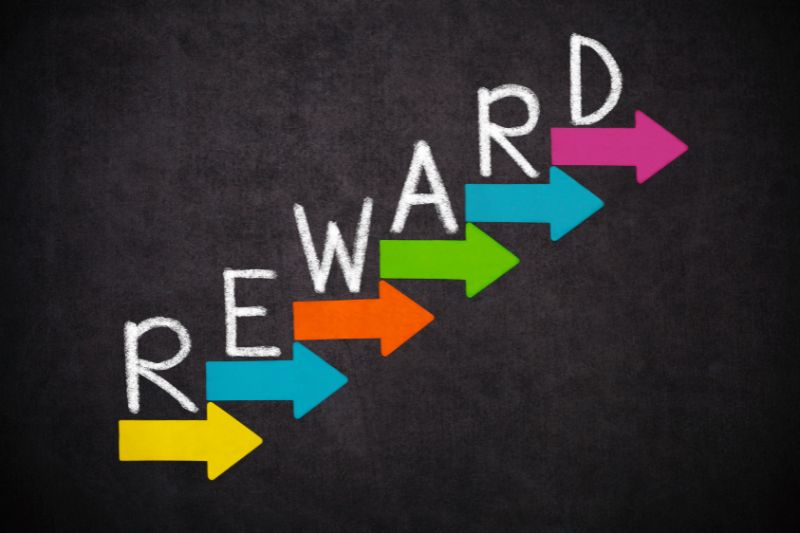Tired of Wasting Time? Overcome ADHD Task Paralysis Today with 3 Proven Strategies
 Do you ever face a task you know you need to do but feel frozen to begin? Task paralysis comes from a combination of being overwhelmed by what’s in front of you, disinterest in the task itself, and a negative expectation that you can actually accomplish it. You may feel profoundly stuck and judge yourself harshly for this too. Folks with ADHD are particularly prone to task paralysis. This is because they often have challenges with initiation, organization, prioritization, sustained focus, and performance anxiety. Of course, stress, worry, and low self-esteem negatively affect anybody’s ability to concentrate. Still, when you add the natural executive functioning challenges that come with having ADHD, it’s even tougher to overcome the hurdles to start, stick with and finish projects, reports, or homework. The likely result is procrastination and avoidance, which only prolongs the inactivity. It’s a vicious cycle that’s hard to break. Fortunately, there are some proven strategies to reduce ADHD task paralysis so that you can feel more productive, more effective, and more regulated.
Do you ever face a task you know you need to do but feel frozen to begin? Task paralysis comes from a combination of being overwhelmed by what’s in front of you, disinterest in the task itself, and a negative expectation that you can actually accomplish it. You may feel profoundly stuck and judge yourself harshly for this too. Folks with ADHD are particularly prone to task paralysis. This is because they often have challenges with initiation, organization, prioritization, sustained focus, and performance anxiety. Of course, stress, worry, and low self-esteem negatively affect anybody’s ability to concentrate. Still, when you add the natural executive functioning challenges that come with having ADHD, it’s even tougher to overcome the hurdles to start, stick with and finish projects, reports, or homework. The likely result is procrastination and avoidance, which only prolongs the inactivity. It’s a vicious cycle that’s hard to break. Fortunately, there are some proven strategies to reduce ADHD task paralysis so that you can feel more productive, more effective, and more regulated.
What is ADHD Task Paralysis?
 Simply put, task paralysis is the feeling of being completely overwhelmed and stuck and unable to do the work you need to do. Planning and executing tasks is particularly challenging for people living with ADHD, so you may find yourself too often unable to start something or know how to move forward–whether or not you like the task. Negative self-talk may also fill you with dread and make you think you’ll fail at whatever work you’re supposed to do. Or you may feel the task itself is boring or unpleasant, so why bother doing it in the first place? As a result, you delay, avoid, or ignore the task. You know it must be done, but with little motivation and a sense of dread, stress and anxiety creep up, leading to more overwhelm.
Simply put, task paralysis is the feeling of being completely overwhelmed and stuck and unable to do the work you need to do. Planning and executing tasks is particularly challenging for people living with ADHD, so you may find yourself too often unable to start something or know how to move forward–whether or not you like the task. Negative self-talk may also fill you with dread and make you think you’ll fail at whatever work you’re supposed to do. Or you may feel the task itself is boring or unpleasant, so why bother doing it in the first place? As a result, you delay, avoid, or ignore the task. You know it must be done, but with little motivation and a sense of dread, stress and anxiety creep up, leading to more overwhelm.
Help yourself get unstuck.
Whether it’s work, school, or family life, getting bogged down by task paralysis is tough. Fear of failure or intense uncertainty can freeze you up and get in the way of performing activities at work or home the way you would like. Here are three strategies to help you overcome feeling stuck and start getting things done.
1. Break things down to improve your ability to start something
Whether you have a huge tasks to tackle or just a few things that feel enormous, breaking things down into smaller, manageable chunks will bring a lot of relief. Why does this work? With executive functioning challenges accompanying ADHD, you’ll feel a sense of progress when you can begin to work on things you can accomplish. Then, you’ll start to feel like the ball is rolling instead of being stuck in a mound of snow. This movement is in itself encouraging and starts to build the momentum you need to keep going.
 How To Start!
How To Start!
Start by making a big list based on a brain dump. Then take a single item, put it on a separate page and separate that into parts. Work your way through one step at a time. Staying organized and then enjoying the satisfaction of checking off completed items is not only gratifying but also productive.
Example 1: Tidy up the kitchen
- Fill the dishwasher
- Wipe the counters
- Put food away into cabinets/refrigerator
- Sweep the floor
Example 2: Write a report
- Collect necessary materials
- Write an outline that includes sections for different topics
- Create a quiet work space and use music or brown noise to enhance concentration
- Use the Pomodoro method to structure work periods and short break times.
- When you finish a chunk of work, take a longer, timed break to integrate mentally what you’ve accomplished.
Remember that progress counts more than perfection. Perfection is impossible to achieve, and if that’s your goal, it’s easy to freeze up out of fear of not achieving it. Instead, focus on shorter, reasonable goals that you can actually meet. Making some amount of progress on a task is always better than striving for perfection and getting nothing done.
2. Motivate yourself with meaningful incentives
 It’s difficult for the ADHD brain to get energized to do uninteresting tasks. Effective incentives (rewards) foster motivation and goal-directed persistence. When you build in little rewards such as a coffee break or a walk around the office and leave yourself a note that guides you back into the flow when you return, you make doing the smaller, attainable task more tolerable and even pleasant. Plus, you’ll make more effective progress. If you dread doing laundry or washing dishes, why not put on upbeat music or listen to an interesting podcast or audio book? If putting together a presentation is a slog, make it more enjoyable by drinking your favorite beverage while you’re working on it and set up an accountability buddy to do some co-working. Many adults (and kids) with ADHD perform better on projects if they are not alone. Make an accurate assessment of how long you can concentrate before you need a break and work within those time intervals. Plan on a 5 minute break after a shorter chunk (30-45 minutes) and then a longer break after a bigger chunk (60 to 90 minutes). Stretch, walk around the block, have a meal or chat with a friend. These active breaks will replenish you and provide a much-needed energy boost.
It’s difficult for the ADHD brain to get energized to do uninteresting tasks. Effective incentives (rewards) foster motivation and goal-directed persistence. When you build in little rewards such as a coffee break or a walk around the office and leave yourself a note that guides you back into the flow when you return, you make doing the smaller, attainable task more tolerable and even pleasant. Plus, you’ll make more effective progress. If you dread doing laundry or washing dishes, why not put on upbeat music or listen to an interesting podcast or audio book? If putting together a presentation is a slog, make it more enjoyable by drinking your favorite beverage while you’re working on it and set up an accountability buddy to do some co-working. Many adults (and kids) with ADHD perform better on projects if they are not alone. Make an accurate assessment of how long you can concentrate before you need a break and work within those time intervals. Plan on a 5 minute break after a shorter chunk (30-45 minutes) and then a longer break after a bigger chunk (60 to 90 minutes). Stretch, walk around the block, have a meal or chat with a friend. These active breaks will replenish you and provide a much-needed energy boost.
3. Improve focus by noticing where it is–and isn’t
Focus is a dynamic process of choosing what is important to notice, do, or recall. When you find yourself frozen in a state of inaction, your mind is likely spinning and reacting to stress. Focus goes out the window. Multitasking may also interfere with your ability to fully pay attention to any one thing and increase feelings of overwhelm. Think of focus as the spotlight of your attention. Notice where it is directed and where you would like it to point. Improve your focus on the task at hand by establishing routines that structure your time and manage interruptions and distractions. Turn off notifications on your phone. Set up a separate browser for work stuff and for everything else.  When you come back from drifting off (which your ADHD brain will naturally do), be kind to yourself. Look around for signals that can re-engage in what’s going on. Routines build habits and these assist you in preparing for how to manage the present effectively and for what’s ahead. They help to fill in the gaps where your working memory may lapse. Keep these routines simple and include time for transitions as well as basic organization so you sit down to work with a tidy desk. For example, when you arrive at work or begin a project, budget in 30 minutes for settling in and set a timer to do this. With increased focus, you’ll feel more productive and calm. No matter how much you struggle with ADHD task paralysis, try to remember that this moment of inertia, dread or procrastination will pass. If you use some of these strategies, you’ll become unstuck and in motion. This feeling of activity will help you move forward, one steady step at a time.
When you come back from drifting off (which your ADHD brain will naturally do), be kind to yourself. Look around for signals that can re-engage in what’s going on. Routines build habits and these assist you in preparing for how to manage the present effectively and for what’s ahead. They help to fill in the gaps where your working memory may lapse. Keep these routines simple and include time for transitions as well as basic organization so you sit down to work with a tidy desk. For example, when you arrive at work or begin a project, budget in 30 minutes for settling in and set a timer to do this. With increased focus, you’ll feel more productive and calm. No matter how much you struggle with ADHD task paralysis, try to remember that this moment of inertia, dread or procrastination will pass. If you use some of these strategies, you’ll become unstuck and in motion. This feeling of activity will help you move forward, one steady step at a time.
Become A Member
Become a member of my newsletter community where you can find support, resources, and connect with a group that understands your questions and needs. Click here
Follow me on social media: YouTube, Facebook, Twitter, and Instagram.
Invite Me to Speak | Join A Group | Newsletter | Read my blog

Sign-up for my newsletter today and receive 10% off!
